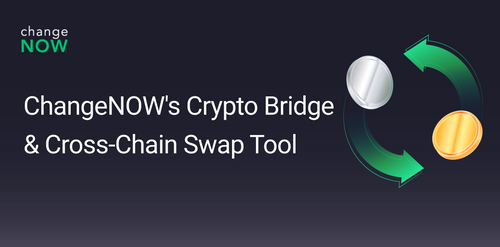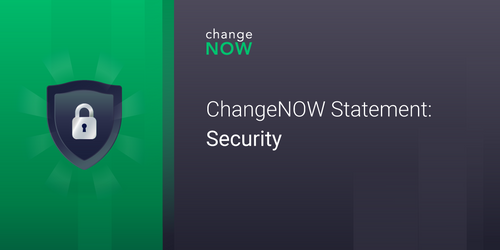Blockchain Technology in Financial Services and Banking
And although in theory it can be applied in almost any industry that relies on data, finance is still the most promising area of implementation for this tech.
Blockchain and cryptocurrency, in particular, hold the power to disrupt traditional finance and improve the way we handle our money. They can contribute to faster, cheaper, and more secure transactions and change the banking industry profoundly. More and more banks and financial institutions worldwide are looking into the new technology in hopes to organize their work more efficiently.

Scope of Application
Traditional financial institutions can choose to work with blockchain to advance their services, otherwise they face a serious competition. Blockchain networks and the evolving DeFi movement aim at transforming the way we handle our financial affairs and allowing people to be their own banks.
Blockchain Technology in Banking
Apart from being slow and expensive, banking as we know is not universally accessible today. Banking is not available for many people living in third-world countries as they live in rural areas and often lack necessary documentation. Blockchain can provide access to personal banking services, insurance, mortgages, and loans to anyone regardless of their level of wealth or location, considering that they have a phone and access to the internet.
New Types of Services
Traditional financial institutions are also quite conservative and they do not often keep up to date with innovations. Blockchain-powered solutions can offer a broader perspective and let people work with derivatives, futures, staking, all sorts of lending, and other products.
Uncensored Services
When you trust a third-party with your money, there’s always a risk of losing control over it. Government restrictions, censorship, and even bankruptcy – when you’re not a sole owner of your assets, it’s not up to you to keep it safe. Blockchain solutions such as wallets, decentralized exchanges, and various DeFi applications do the opposite: they give you back your right to manage your funds independently.
Common Applications
Blockchain tech has the power to dramatically improve a wide range of financial services such as cross-border money transfers, trade finance, capital markets, trading platforms, clearing and settlement, identity verification, fraud detection, credit score reporting, and more.
An improved way of sending money, alongside the high level of security and privacy when handling data, are two of the most basic and yet important use cases for the blockchain tech. Let’s have a closer look at them.
Blockchain Technology for Money Transfers
International money transfers remain an expensive and rather slow affair. Companies like Western Union have almost zero competition in terms of person-to-person money transfers but the services they provide are far from perfect. Apart from charging substantial fees, the process of money transferring is not as fast. And it is also inconvenient. In a world where you can order anything online, going to a physical location with your passport and having to deal with lines and operators seems like a burden.
As for the debit and credit card transfers, they do not always work internationally and even if they do, the speed is slow and commission fees are high. When it comes to sending money overseas, our current banking system is still stuck in the past: a simple transaction should go through a complex infrastructure.
When you want to send assets from one bank to another, these banks need to connect to each other and verify the details of this transaction. Blockchain tech can help banks communicate with one another seamlessly, bypassing the issue of correspondent banking. Instead of sending requests, banks could use a single database for recording and verifying transactions, various contracts, and documents.
Eliminating intermediaries from the money transferring process is one of the most vital functions that blockchain has to offer. Giving access to the unified trustless database means that there is no need for controlling third-parties. A blockchain-powered peer-to-peer network allows us to send money directly to each other.
Ripple is one of the best examples of how financial institutions and blockchain companies can work together in terms of advancing the money transferring process. American Express, MoneyGram, Santander, and hundreds of other financial institutions in more than 40 countries have joined RippleNet to provide a faster, cheaper, and more transparent way to send money internationally.
Although slow in accepting innovations, every year banks around the world are getting serious with implementing solutions within their infrastructure. Banks in Europe, Australia, New Zealand, Singapore, and nearly half of the banks in China have already started implementing distributed ledger technology in their operations. And it’s just the beginning.
Blockchain for Advanced Privacy and Security
When it comes to handling data, blockchain can guarantee a high level of security and privacy. One of the benefits of using distributed ledger technology is that all the data is not being stored locally, so it is a lot harder for attackers to target a single point of failure. It is a lot safer than trusting third-parties to store your information. It is more transparent, too: blockchain creates a universal shared source of truth that is available for everyone on the network. Distributed ledgers also allow network participants to cooperate and come to agreements more effectively.
These characteristics make blockchain tech ideal for executing operations with finance and other transactions that involve sensitive data as they become harder to attack, easier to monitor and reach consensus when working at the same task.
Here are two most promising security-focused areas where blockchain tech will come in handy.
Digital Identity
In case you lose access to your banking app, you’ll have to resolve the issue the old-school way: bring your ID to the bank yourself or undergo a long process of verifying your identity that involves making selfies holding today’s newspaper, showcasing your social media profiles, and other things that take time and violate your privacy. Alternatively, you can safely store your digital identity on blockchain and even categorize the data according to your personal needs and enhance privacy.
KYC/AML
Same goes for KYC and AML procedures. Today banks have to spend millions on compliance and still the cases of fraud are not entirely eliminated. Blockchain tech can allow companies to access digital identification and verification of their clients and exchange data with one another to confirm the details. This will significantly improve and accelerate the work of compliance departments.
Bottom Line
The scope of blockchain application in the world of traditional finance is limitless. Distributed ledger technology with its improved way of storing and managing data opens up new opportunities for managing your personal finance.
By integrating blockchain into banks we can achieve faster, cheaper, and safer transactions. It will also deal with fraud more effectively, reorganize and structure the work of compliance departments, help with handling the KYC and AML procedures, and revolutionize the way the banks handle our data.



